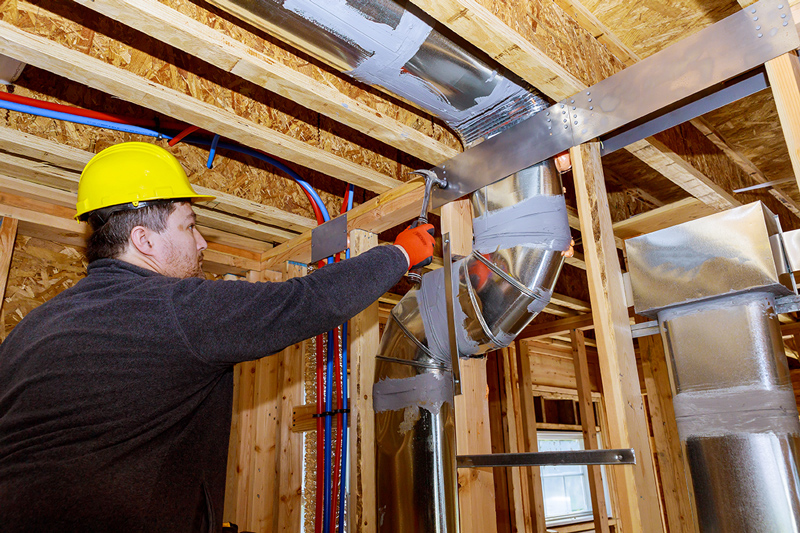When you think of air pollution, you think of greenhouse gas from factories. But air pollution includes all pollutants in the air, including those in your home. Indoor air pollution levels tend to increase during the winter months. It’s vital that you take measures to reduce these levels in your home to keep your family safe and healthy.
Why is Air Quality Worse in the Winter?
There are two main reasons that indoor air quality drops in the wintertime. First, the cold and dry air that the winter produces traps more airborne toxins than warmer air. As the days become shorter, more families spend time indoors with the doors and windows shut.
Upgrade and Replace Your HVAC Filter
Your HVAC system has an air filter that traps unwanted particulate matter in your home. It’s best to check on this filter at least once a month and replace it as soon as you can’t see through it. If you’re using a basic fiberglass air filter, it’s best to upgrade to a pleated model. This type of filter has more surface area due to its pleating. It can trap more harmful airborne debris than fiberglass filters can.
Have Your Ductwork Cleaned
If you rely on a forced-air heating system, then you have ductwork that runs throughout your home. As air travels into your ducting, it can bring unwanted particles and debris. Over time, it will start to accumulate all this debris. That debris continues to recirculate inside your home. Having a professional come to clean out your ductwork every two to five years is vital. It will help to get rid of this excess debris.
Set a Regular Cleaning Schedule
One big component that contributes to poor winter indoor air quality is excess dust in your home. As your family comes in and out, they bring different airborne particles with them. Over time, these particles will settle on your surfaces and leave a thick layer of dust. Set a weekly cleaning schedule to remove that dust so that it doesn’t enter your air for your family to breathe.
Always Use Exhausts to Vent Steam
One big contributor to poor indoor air quality in the winter is steam from cooking. This steam includes oils that can enter your air. Using an exhaust fan over your stove when you cook can reduce this steam from entering the air in your home. You should also consider adding an exhaust fan in your bathroom to trap steam from your shower and tub. This will ensure that excess moisture doesn’t linger around. Excess moisture can create the perfect breeding environment for unwanted mold spores.
Call Us Today
If you need an HVAC professional to handle the airborne pollutants in your home, then it’s time to give us a call. Our HVAC professionals can help you with all your HVAC and indoor air quality needs.

